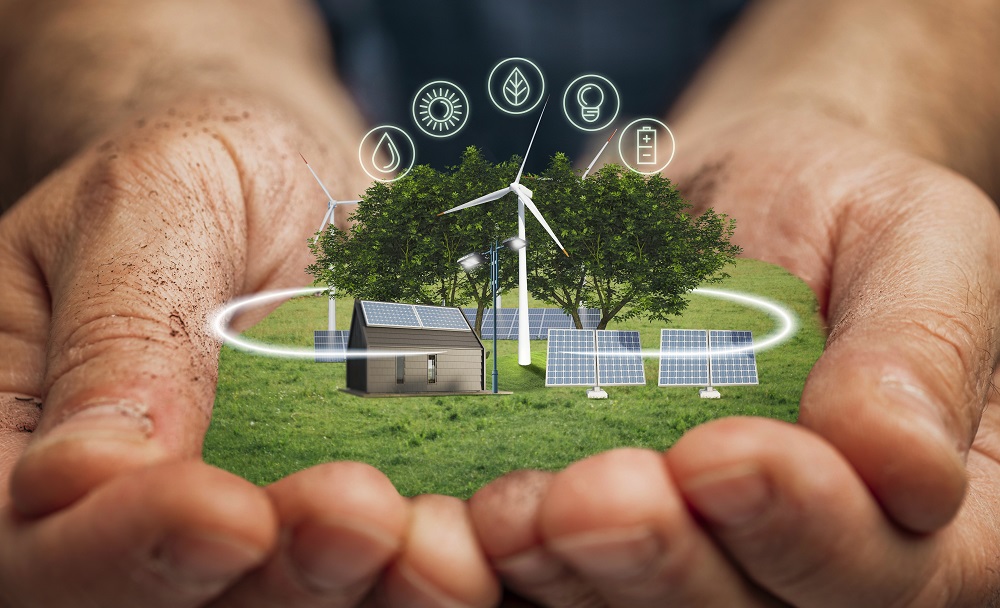
In recent years, the global community has witnessed a profound shift in the way energy is generated, distributed, and consumed. The transformation from fossil fuels to renewable energy sources is not just a technological revolution, but a necessary response to the escalating climate crisis and the depletion of finite natural resources. This article delves into the transformative power of renewable energy, examining its impact on the environment, economy, and society.
Environmental Impact
The most immediate and apparent benefit of renewable energy is its positive impact on the environment. Traditional energy sources, such as coal, oil, and natural gas, are responsible for significant air and water pollution, habitat destruction, and greenhouse gas emissions. The combustion of fossil fuels is the largest source of CO2 emissions, contributing to global warming and climate change.
Renewable energy sources, such as solar, wind, and hydroelectric power, offer a cleaner alternative. They produce little to no emissions during operation and have a much lower environmental footprint. By reducing dependence on fossil fuels, countries can mitigate the effects of climate change, protect biodiversity, and preserve natural habitats.
Economic Benefits
The economic benefits of renewable energy are multifaceted. The sector has experienced exponential growth over the past decade, creating millions of jobs worldwide. In the United States alone, the renewable energy industry employs more people than the coal, oil, and gas industries combined.
Investing in renewable energy also stimulates economic growth. It diversifies the energy supply, making countries less reliant on imported fuels and more energy secure. Additionally, the cost of renewable energy technologies has dropped significantly in recent years, making them more competitive with traditional energy sources. Solar and wind power are now the cheapest sources of new electricity generation in many parts of the world.
The transition to renewable energy also presents opportunities for innovation and the development of new industries. Energy storage, smart grids, and renewable energy integration are just a few areas where technological advancements are driving economic growth.
Social Implications
The shift to renewable energy has profound social implications. Access to affordable and reliable energy is a crucial driver of social development and equity. Renewable energy can play a significant role in providing energy access to the 789 million people worldwide who currently live without electricity.
Decentralized renewable energy systems, such as solar home systems and mini-grids, are particularly well-suited for remote and off-grid communities. They provide a cost-effective and scalable solution for electrifying rural areas, improving access to education, healthcare, and economic opportunities.
Furthermore, the transition to renewable energy can contribute to social justice and the reduction of inequality. The fossil fuel industry has a long history of disproportionately impacting marginalized communities, often situated near polluting facilities. Transitioning to cleaner energy sources can help address these environmental injustices and improve public health outcomes.
Challenges and The Way Forward
Despite the numerous benefits of renewable energy, there are challenges to its widespread adoption. The intermittency of solar and wind power requires investments in energy storage and grid infrastructure to ensure a reliable energy supply. Policy and regulatory support are also crucial for creating a conducive environment for renewable energy investment.
The transition to renewable energy must be just and inclusive, ensuring that workers and communities affected by the decline of the fossil fuel industry are not left behind. This includes providing training and re-skilling programs, as well as investing in new industries and job creation in affected regions.
Conclusion
The transformational power of renewable energy is undeniable. It offers a sustainable, cleaner, and more equitable solution to the world’s energy needs. By embracing renewable energy, countries can address the urgent challenges of climate change, stimulate economic growth, and promote social development.
The shift to renewables is not just a technological transition; it is a fundamental change in the way society values and interacts with the environment. It requires collective action, innovative solutions, and a commitment to building a sustainable future for all. The time for change is now, and renewable energy is at the forefront of this global transformation.



